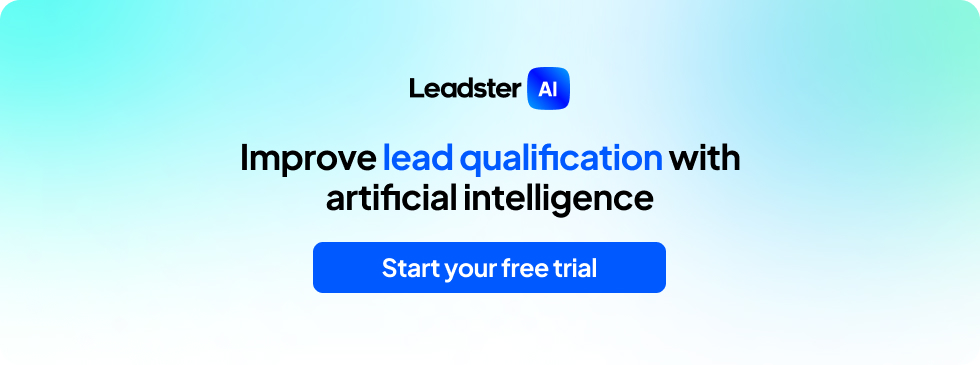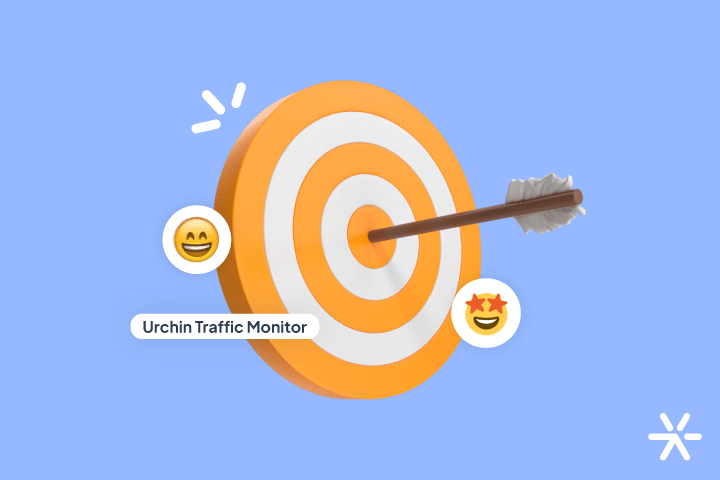What is Lead Scoring and How to Apply It to Optimize Sales
Just capturing leads is not enough to guarantee the expected sales results.
Qualifying these contacts and working together between marketing and sales are fundamental to generate real business opportunities.
And Lead Scoring methodology comes to add value to this scenario!
It is used to understand the profile of the lead database, qualify those closer to the bottom of the funnel, and distribute the right contacts for the sales approach.
Learn all about this methodology in the post.
What is Lead Scoring?

Lead Scoring is a methodology used to classify potential customers.
Through a scoring system and according to predefined criteria, the lead scores as they perform new conversions and interact with the brand.
The classification also depends on the consumer’s profile, as the closer the contact is to the ideal consumer, the higher their score.
The result is the qualification and filtering of the most interesting leads for the commercial approach.
🤿 Dive deeper: Lead First Contact - 13 Tips on What to Say, Where and When
Increased productivity for the sales team
Imagine a sales team that contacts all leads generated, whether qualified or not.
This team will be much more exhausted and will also waste time since many of these leads do not have the right profile or are not yet at the ideal time to buy.
With Lead Scoring, only the best-qualified contacts are directed to sales, increasing the conversion rate and productivity of the team, which works more motivated.
Increased sales
Sales representatives focus their efforts on more likely contacts to buy.
By approaching leads with better potential, conversion rates increase, as do sales since the chances of closing are better with those at the bottom of the funnel.
Shortening the sales cycle
The time for convincing and sales arguments is also optimized when talking to customers who already know what solution they are looking for and are only defining the best brand.
As a result, the sales cycle, or the time between the first sales contact and closing the deal, also decreases.
Decrease in churn rate
Churn shows the dropout rate among consumers of a particular brand and is a metric mainly used by companies that work with selling products or services recurrently.
With the Lead Scoring system, reducing this rate is favored in two ways:
Consumers who close a contract have a lower chance of canceling since they are within the right consumption solution profile;
Consumers, like brands, change. The Lead Scoring system can also continue to monitor the interests and profile of each lead after purchase and can be an alert signal when a certain customer loses points. In this sense, retention actions can be directed to these contacts.
Higher customer satisfaction rates
Once again, by identifying ideal consumers, the score reinforces sales to those customers who will be satisfied with the solution delivered by the company.
Improvement of your brand’s reputation
All these metrics, when healthy, improve the company’s financial results.
Moreover, the brand is better received in the market, and consumers tend to recommend the company to acquaintances.

How does Lead Scoring work?

The system is based on criteria, points, and weights defined according to the business qualifiers.
Aspects like decision-making power, purchasing power, consumption profile, age range, and location can be among the qualification criteria.
Everything depends on the profile outlined as the ideal consumer.
The closer the lead is to this profile, the higher their score.
There are several automation tools and different Lead Scoring systems.
With them, you make the necessary configurations, and each generated lead scores as they convert, interact, and provide information to your company.
This is a process that does not have a finalization, after all, new leads continue to be generated every day.
And we also need to consider the changes we have already mentioned: both regarding consumer interests and brand interests.
Lead Scoring Systems
Know the main Lead Scoring systems that will make it possible to implement this methodology:
Manual System
In the manual system, each lead is analyzed and scored without the assistance of an automation tool.
The manual system is not recommended since failures can occur, and it is very laborious, even with a smaller volume of leads.
Semi-Automatic System
In the semi-automatic model, usually implemented through spreadsheets or simpler tools.
These spreadsheets have automatic formulas, but lead information needs to be manually inputted or connected to lead entry platforms.
This can be a solution for companies with a small volume of leads, but it is not scalable and will end up being only a temporary way to qualify contacts.
Automatic System
The automatic Lead Scoring system is the least laborious and most scalable since it has an automation tool to assign a score to each contact.
There are several tools on the market that offer the Lead Scoring functionality, ranging from simple solutions (only with assigned scores), complete ones (with the possibility of configuring different weights for criteria and also considering the interest profile), and also predictive ones (when the system itself analyzes and defines criteria and weights).
How to create a Lead Scoring model?

In addition to choosing the system and tool for Lead Scoring application, there are some important steps.
Check them all:
Define what a qualified lead is for marketing and sales
Before setting up the point system, you need to define which qualification criteria are relevant to your brand.
For that, you need to be very clear about what your ideal customer profile is and what their characteristics are.
Use your personas in this construction and remember: if you work with more than one profile, you need to define different criteria for each of them.
Also, define the weights for this criterion.
For example, purchasing power may be more important than the location of your lead and therefore should have a higher weight in scoring.
Consider the information from the form or chatbot
Lead Scoring needs access to lead information to perform analyses and scores.
Therefore, explore forms and chatbots, especially those at the bottom of the funnel, with questions that will answer qualification criteria.
Still using the previous example, if location and purchasing power are important, you need to obtain this lead’s information.
Be careful to ask for information at the right time and not be invasive with leads who haven’t gotten there yet.
Use Lead Tracking
Lead behavior also says a lot about the profile and interests of the lead.
Therefore, if your automation tool offers the Lead Tracking option, it should be used for a more complete Lead Scoring methodology.
This functionality monitors the pages the lead visits on your site and the interactions they have with your brand.
For example, a lead may appear more apt for commercial approach if they visit the pricing page of your site or if they open and click on promotional emails.
This option also helps in other moments to qualify contacts.
If your brand has a blog, for example, you can segment leads interested in a particular topic and offer them other content on the subject.
Pay attention to scoring your pages
Regarding the scoring assigned with the pages visited, make sure they are correctly related to the sales funnel stage, so as not to end up scoring contacts incorrectly.
A lead visiting the blog has different interests from one visiting functionality pages, which in turn is different from one accessing pricing, free trials, and quotes pages.
You may also be interested in – How Pre-Sales Area Can Improve Your Results
Consider demographic information
In addition to behavioral data, lead demographic data should be considered in building Lead Scoring.
Information such as age group, gender, income, job title, work area, and location should be captured and help in scoring, but only if they are relevant to evaluating if the lead has a profile close to the ideal consumer profile.
Score Limit
Define a score at which the lead will be considered a business opportunity, that is, they will be directed to the commercial team’s work.
In addition to Lead Scoring, it is important to follow up so as not to miss the timing and to increase lead-to-customer conversion rates.
Conclusion
Implementing Lead Scoring in your marketing and sales strategy will transform the work of the teams, attract leads who are genuinely interested in your solution, and prioritize resources for those contacts that will bring a greater return to your business.
Ready to start?
If you have any further questions, leave them in the comments here on the post, and we will be happy to help in this journey!
Be sure to check out Leadster’s free trial too. It’s free for 14 days and no credit card required.
Thanks for reading!








